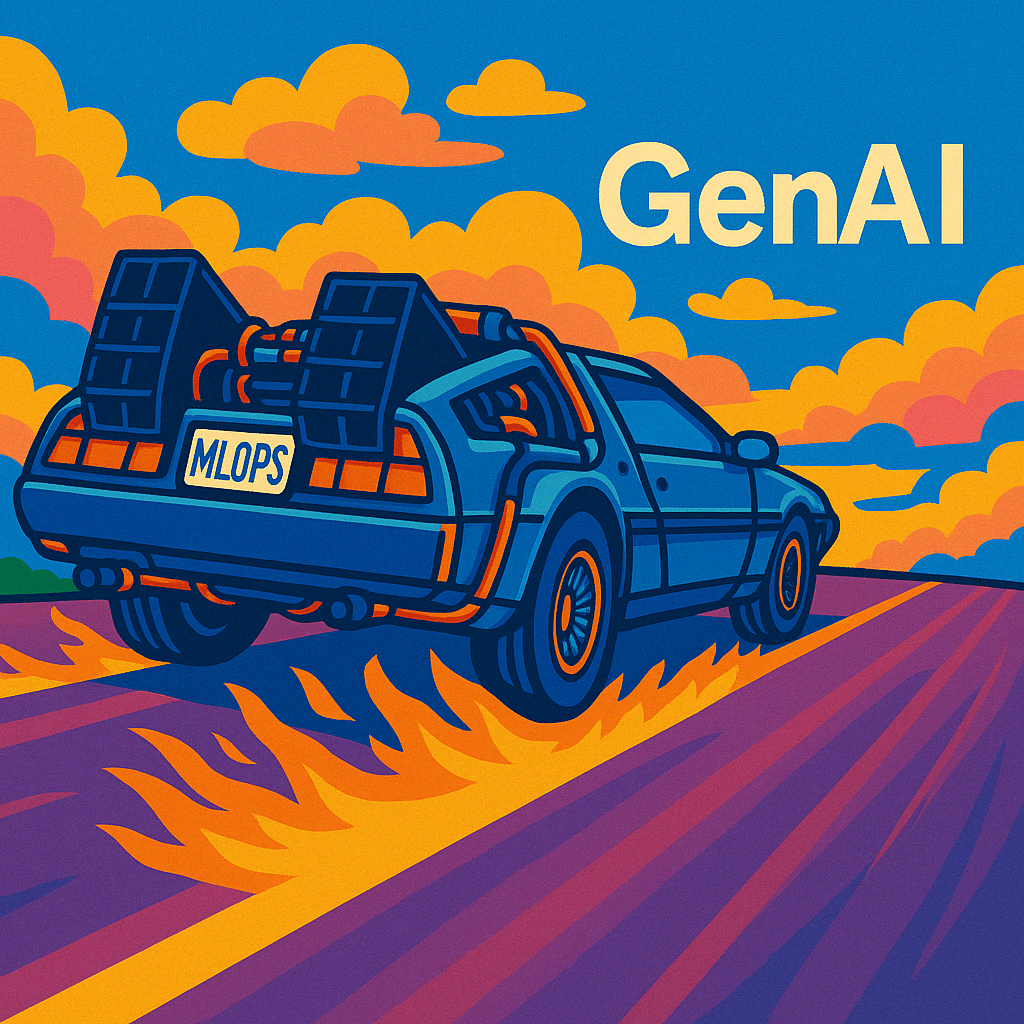Good morning,
First off, thanks everyone for your interest in the podcast. If you haven’t listened to the latest show, it’s a bit different than the previous ones. It’s the first in a series of interviews with folks doing interesting things in the machine learning and AI arena. I hope you find it interesting!
This week the interview took the place of the regular news show, mostly because I didn’t have time to put the latter together. The news show is a ton of work, with each show taking about 24 hours to produce (down from 30+ when I started), and they can’t, by definition, be done in advance. All that said, I really believe in the format-—creating it was scratching my own itch-—so I’m working on ways to ensure it can continue uninterrupted, even when I’m traveling late in the week (as was the case this week), have other projects to attend to, or my wife gets tired of me dedicating the weekends to it (I’m starting to get that look).
A couple of things I’m working on to this end are to (a) find some regular sponsors for the show and (b) find/hire someone or a small team of someones who can help me produce the show. Of course, (a) makes (b) possible, but I’m pursuing both in parallel as of now. You can help by continuing to share the podcast with your friends, review it on iTunes, post it, tweet it, etc.
Ok, enough of the “inside baseball.” Here’s a quick rundown of the interesting ML and AI news for the week.
Business
We saw a few interesting business and product announcements this week:
Shopping and travel bot startup Mezi raised $9 million in a series A financing closed this week.
- Investors in this round include previous investor Nexus Venture Partners and new investors Saama Capital and American Express Ventures. They’ve also brought on new individual investors Amit Singhal, former SVP and Head of Google Search, and Gokul Rajaram, Product Engineering Lead at Square.
B12–like the vitamin I suppose–raised a $12.4 million series A.
- These guys are not the first guys to talk about applying AI to web site development… see The Grid for an earlier example. Like Mezi, they’re also highlighting their use of hybrid AI in delivering their solution. We’ll see a lot more of this type of business in the near future: startups taking traditional service-oriented businesses and sprinkling on some AI in the form of tools or automation under the covers–perhaps even just a bit to get started with.
Prospera has raised $7 million to commercialize just one of many applications that will apply AI to this data.
- Prospera is developing a system based on computer vision and deep learning technologies that will determine when, where and how much water to deliver to crops to improve yields while conserving resources.
Google introduces ML-based bid automation tools with AdWords Smart Bidding.
- Smart Bidding takes millions of signals into account to help users determine the best bid for a given ad unit, and it automatically refines conversion performance models to optimize deployment of customers’ advertising budgets.
Office 365 adds Researcher and Editor, new intelligent services to aid users writing reports and other documents in Word.
- Researcher is a sidebar that pulls up related articles from encyclopedias and the web based on what the user has written, and Editor is a smarter evolution of Word’s spelling and grammar checkers. We’ve seen research sidebars in Word before and they’ve never proven useful, so it will be interesting to see how this one performs. Editor, on the other hand, I’d expect to be really useful, and to eventually replace the standard editorial tools in Word over time.
Last, but certainly not least, Prisma, the app we talked about last time for bringing research into artistic style transfer with neural networks to the iPhone is now available on Android.
- I’ve played with it and it’s pretty cool.
Research
OpenAI is hiring.
- Elon Musk-founded OpenAI is hiring researchers to work on a few “special projects”. They specific research areas are: 1. Detecting if someone is using a covert breakthrough AI system in the world. 2. Building an agent to win online programming competitions. 3. Cyber-security defense. 4. Creating a complex simulation with many long-lived agents. Call me crazy, but as much as Musk says he fears an AI, the research areas here seem to be right out of an apocalyptic AI movie.
Neural Network from Matroid leads in Princeton Competition.
- This is an interesting post describing Matroid’s entry into the Princeton ModelNet competition for classifying 3D CAD models. Their application of Convolutional Neural Networks (CNNs) to this problem is interesting, and they’ve published a paper on their approach on arXiv.
If you haven’t seen the sample images from the DeepWarp Project around this week, you should check them out.
- A team of researchers from Skolkovo Institute of Science and Technology in Russia developed a deep learning model for creating photorealistic images from a base image where the eyes are looking in an arbitrary direction. I’d like to dig deeper into this paper at some point.
Projects
- The Charades Data Set is an interesting set of dataset composed of nearly 10,000 videos of daily indoors activities collected by the Allen Institute for AI using Amazon Mechanical Turk. The dataset contains 66,500 temporal annotations for 157 action classes, 41,104 labels for 46 object classes, and 27,847 textual descriptions of the videos.
- Language modeling a billion words. An interesting project to create a generative natural language AI using LSTM RNNs trained on the Google Billion Words dataset. An interesting discussion of the techniques used to achieve scale, including the use of multiple GPUs.
Bonus: Yann LeCun on Quora
Yann LeCun, director of AI research at Facebook and NYU professor, did an AMA over on Quora the other day. Here are some of the responses I found interesting:
-
What are the likely AI advancements in the next 5 to 10 years? – Quora
-
Who is leading in AI research among big players like Google, Facebook, Apple and Microsoft? – Quora
-
What is a plausible path (if any) towards AI becoming a threat to humanity? – Quora
-
What are some recent and potentially upcoming breakthroughs in deep learning? – Quora
Sign up for our Newsletter to receive this weekly to your inbox.





